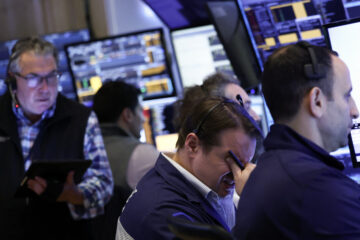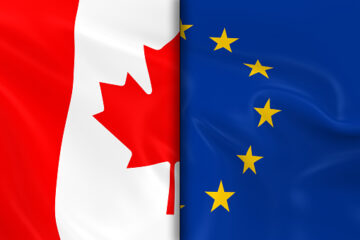JPMorgan Chase (JPM) CEO Jamie Dimon is raising red flags about the impact President Donald Trump’s tariffs will have on the economy.
Tariffs are taxes companies pay to import goods from overseas, and the extra cost is often passed down to consumers through price hikes.
💵💰Don’t miss the move: Subscribe to TheStreet’s free daily newsletter 💰💵
On April 2, which Trump marked as “Liberation Day,” the president announced a 10% “baseline” tariff on all countries importing goods to the U.S., with roughly 60 countries seeing higher tariff rates, in an effort to free the nation from its reliance on imported goods.
Related: Mark Cuban sounds alarm on how consumers should handle tariffs
Shortly after the announcement, the U.S. stock market lost roughly $3.1 trillion in market value, its largest decrease since March 2020.
Jamie Dimon, chief executive officer of JPMorgan Chase & Co., during a Bloomberg Television interview on the sidelines of the JPMorgan Tech Stars Leadership Forum in London on Oct. 2, 2023.
Jamie Dimon addresses growing threat of tariffs
In an annual letter to shareholders, Dimon highlighted that the U.S. economy had already been “weakening” before the recent tariff announcement.
“The economy is facing considerable turbulence (including geopolitics), with the potential positives of tax reform and deregulation and the potential negatives of tariffs and ‘trade wars,’ ongoing sticky inflation, high fiscal deficits and still rather high asset prices and volatility,” said Dimon.
He also confirmed what many consumers suspected about Trump’s tariffs: prices aren’t coming down anytime soon.
“The recent tariffs will likely increase inflation and are causing many to consider a greater probability of a recession,” said Dimon. “And even with the recent decline in market values, prices remain relatively high. These significant and somewhat unprecedented forces cause us to remain very cautious.”
Related: Walmart doubles down on harsh tactic to shrink threat of tariffs
Dimon also noted that tariffs will not only cause the prices of foreign goods to increase, but also domestic goods.
“As for the short-term, we are likely to see inflationary outcomes, not only on imported goods but on domestic prices, as input costs rise and demand increases on domestic products,” said Dimon. “How this plays out on different products will partially depend on their substitutability and price elasticity.”
He flagged that Trump’s new tariff policy has many uncertainties, such as the possible threat of “retaliatory actions” from other countries, the impact it will have on consumer confidence, how it will affect investments and capital flows, and the effect on corporate profits and the U.S. dollar.
“The quicker this issue is resolved, the better because some of the negative effects increase cumulatively over time and would be hard to reverse,” said Dimon. “In the short run, I see this as one large additional straw on the camel’s back. I am hoping that after negotiations, the long-term effect will have some positive benefits for the United States. My most serious concern is how this will affect America’s long-term economic alliances.”
JPMorgan makes a startling recession prediction
Dimon also said that whether tariffs would cause a recession “remains in question,” but he warned that they will “slow down growth.”
Dimon’s comments about tariffs and the economy come after JPMorgan Research recently announced in a press release that the probability of a recession this year stands at 40%, which is higher than the 30% it previously predicted.
More Tariffs:
Mark Cuban sounds alarm on how consumers should handle tariffsTarget makes controversial move to dodge high tariff costs Walmart doubles down on harsh tactic to shrink threat of tariffs
“We now see a materially higher risk of a global recession,” said Bruce Kasman, chief global economist at J.P. Morgan, in the press release. “The administration’s shift in the application of tariff policy and the potential impact on sentiment have contributed to this increased risk.”
Amid Trump’s tariffs, many consumers have already planned to change their spending habits dramatically.
According to a recent market pulse survey from InMoment, 56% of the survey’s respondents expect prices for goods and services to increase due to Trump’s tariffs.
In response to these expected price hikes, 60% of respondents said they are contemplating changing their shopping behavior, with more expecting to shop less rather than more.
Related: Veteran fund manager unveils eye-popping S&P 500 forecast


